Intro
Discover the role of PTH hormone, a crucial regulator of calcium levels, bone health, and parathyroid function, influencing osteoporosis, hyperparathyroidism, and hypoparathyroidism conditions.
The human body is a complex system that relies on various hormones to function properly. One such hormone is the parathyroid hormone, commonly referred to as PTH hormone. This hormone plays a crucial role in maintaining the body's calcium levels, which is essential for healthy bones, muscles, and nerves. In this article, we will delve into the world of PTH hormone, exploring its importance, functions, and the impact of its imbalance on the human body.
The PTH hormone is produced by the parathyroid glands, which are four small glands located in the neck, behind the thyroid gland. The primary function of PTH hormone is to regulate the levels of calcium in the blood. When calcium levels drop, the parathyroid glands release PTH hormone, which helps to increase calcium levels by stimulating the release of calcium from bones, increasing calcium absorption from food in the gut, and reducing calcium excretion in the urine. This delicate balance is essential for maintaining healthy bones, muscles, and nerves.
The importance of PTH hormone cannot be overstated. Without it, the body would struggle to maintain healthy calcium levels, leading to a range of health problems. For example, low calcium levels can cause muscle cramps, weakness, and numbness, while high calcium levels can lead to kidney stones, bone pain, and abdominal cramps. Therefore, it is essential to understand the role of PTH hormone in maintaining calcium homeostasis and the consequences of its imbalance.
How PTH Hormone Works
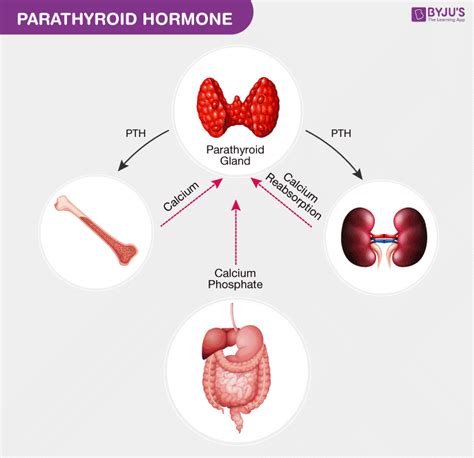
The PTH hormone works by binding to receptors on the surface of cells in the bones, kidneys, and gut. This binding stimulates a range of responses that help to increase calcium levels in the blood. For example, in the bones, PTH hormone stimulates the release of calcium from bone tissue, which is then released into the bloodstream. In the kidneys, PTH hormone helps to reduce calcium excretion, ensuring that more calcium is retained in the body. In the gut, PTH hormone increases the absorption of calcium from food, which is then transported to the bloodstream.
The PTH hormone also plays a crucial role in regulating the levels of other hormones, such as vitamin D. Vitamin D is essential for calcium absorption, and PTH hormone helps to stimulate the production of vitamin D in the kidneys. This ensures that the body has sufficient vitamin D to absorb calcium from food, which is then used to maintain healthy bones and teeth.
Benefits of PTH Hormone
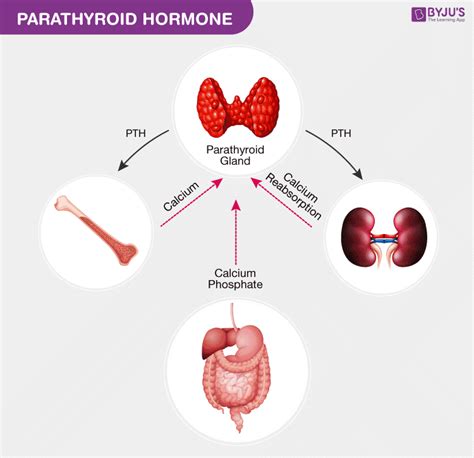
The benefits of PTH hormone are numerous. For example, it helps to maintain healthy bones and teeth by regulating calcium levels. This is especially important for children and adolescents, who are still developing their bones and teeth. PTH hormone also helps to prevent osteoporosis, a condition characterized by brittle and fragile bones. By maintaining healthy calcium levels, PTH hormone helps to reduce the risk of osteoporosis and fractures.
PTH hormone also plays a crucial role in maintaining healthy muscles and nerves. Calcium is essential for muscle contraction and relaxation, and PTH hormone helps to ensure that muscles have sufficient calcium to function properly. This is especially important for athletes and individuals who engage in regular physical activity.
Key Functions of PTH Hormone
- Regulates calcium levels in the blood
- Stimulates the release of calcium from bones
- Increases calcium absorption from food in the gut
- Reduces calcium excretion in the urine
- Regulates the production of vitamin D
Disorders Related to PTH Hormone Imbalance
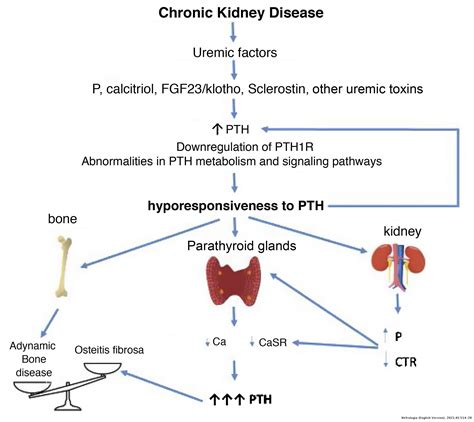
An imbalance of PTH hormone can lead to a range of health problems. For example, an overproduction of PTH hormone can lead to hyperparathyroidism, a condition characterized by high calcium levels in the blood. This can cause a range of symptoms, including kidney stones, bone pain, and abdominal cramps.
On the other hand, an underproduction of PTH hormone can lead to hypoparathyroidism, a condition characterized by low calcium levels in the blood. This can cause a range of symptoms, including muscle cramps, weakness, and numbness.
Common Disorders Related to PTH Hormone Imbalance
- Hyperparathyroidism
- Hypoparathyroidism
- Osteoporosis
- Kidney stones
- Bone pain
Treatment Options for PTH Hormone Imbalance
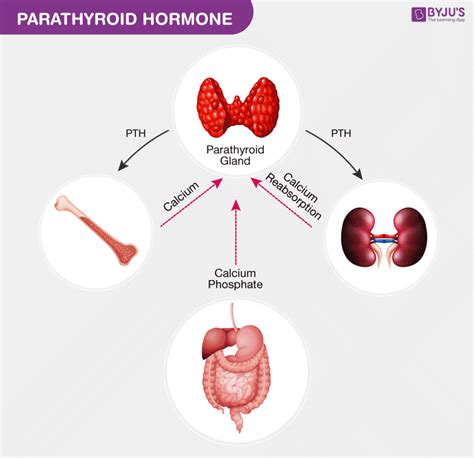
Treatment options for PTH hormone imbalance depend on the underlying cause of the condition. For example, hyperparathyroidism may be treated with surgery to remove the parathyroid glands, while hypoparathyroidism may be treated with calcium and vitamin D supplements.
In some cases, medication may be prescribed to regulate PTH hormone levels. For example, cinacalcet is a medication that helps to reduce PTH hormone levels in individuals with hyperparathyroidism.
Treatment Options for PTH Hormone Imbalance
- Surgery to remove the parathyroid glands
- Calcium and vitamin D supplements
- Medication to regulate PTH hormone levels
- Lifestyle changes, such as diet and exercise
Prevention and Management of PTH Hormone Imbalance
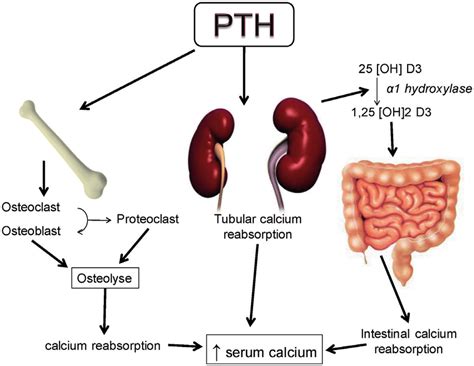
Prevention and management of PTH hormone imbalance involve maintaining a healthy lifestyle, including a balanced diet and regular exercise. A diet rich in calcium and vitamin D can help to support healthy PTH hormone levels, while regular exercise can help to maintain strong bones and muscles.
Individuals with a family history of PTH hormone imbalance may need to take extra precautions to prevent the condition. For example, they may need to undergo regular blood tests to monitor their PTH hormone levels.
Prevention and Management Strategies
- Maintain a healthy lifestyle, including a balanced diet and regular exercise
- Get regular blood tests to monitor PTH hormone levels
- Avoid smoking and excessive alcohol consumption
- Manage stress through relaxation techniques, such as meditation and yoga
Conclusion and Final Thoughts

In conclusion, PTH hormone plays a vital role in maintaining healthy calcium levels in the body. An imbalance of PTH hormone can lead to a range of health problems, including hyperparathyroidism, hypoparathyroidism, and osteoporosis. Treatment options for PTH hormone imbalance depend on the underlying cause of the condition, and may include surgery, medication, and lifestyle changes.
By understanding the importance of PTH hormone and taking steps to prevent and manage its imbalance, individuals can reduce their risk of developing related health problems. We encourage readers to share their thoughts and experiences on PTH hormone imbalance in the comments section below. Additionally, we invite readers to share this article with others who may be interested in learning more about this important topic.
What is PTH hormone?
+PTH hormone, or parathyroid hormone, is a hormone produced by the parathyroid glands that helps to regulate calcium levels in the blood.
What are the benefits of PTH hormone?
+The benefits of PTH hormone include maintaining healthy bones and teeth, preventing osteoporosis, and regulating calcium levels in the blood.
What are the symptoms of PTH hormone imbalance?
+The symptoms of PTH hormone imbalance may include muscle cramps, weakness, numbness, kidney stones, bone pain, and abdominal cramps.
